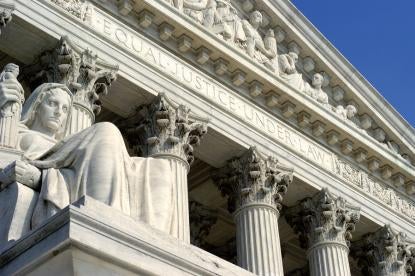Earlier this week, the Supreme Court got back to work in the New Year. One of the court’s first orders of business was to invite the Acting Solicitor General to file a brief expressing the views of the United States in a handful of cases. Fenkell v. Alliance Holdings, Inc., a somewhat controversial ERISA case, landed amongst the chosen few. Specifically under Fenkell, the Supreme Court invited the Acting Solicitor General to opine on whether ERISA permits a cause of action for indemnity or contribution by an individual found liable for breach of fiduciary duty in light of the existing circuit split on the issue.
While the facts of Fenkell are largely irrelevant for this discussion, the important takeaway is that an ERISA employee stock ownership plan fiduciary led the effort to offload an unprofitable company onto its employees in a complicated leveraged buyout. The involved and resulting breach of ERISA fiduciary duties is not contested. Rather, the ringleader, Fenkell, challenged (and continues to challenge) the judge’s order requiring him to indemnify his co-fiduciaries. Simply put, the indemnification order seemed appropriate to the court given the control that Fenkell exerted over the other fiduciaries—the court noted the other fiduciaries’ “inexperience” as fiduciaries and their deference to Fenkell as the controlling owner, sole director, president, and CEO of Alliance. Stated another way, Fenkell was the “conductor,” and the other fiduciaries involved were the “mere musicians.”
In an earlier review, the Seventh Circuit rejected each of Fenkell’s arguments and followed its 30-year-old precedent which allows for indemnification and contribution among co-fiduciaries. In support of its decision to uphold its prior interpretation, the Seventh Circuit reiterated that “[i]f we are to interpret ERISA according to the background principles of trust law—as the Supreme Court has repeatedly instructed us to do—then indemnification and contribution are available equitable remedies under the statute.” Accordingly, the Seventh Circuit found ERISA’s equitable remedial power, as well as its foundation in principles of trust law, supportive of an order for contribution or indemnification among co-fiduciaries based on degrees of culpability.
While this case has not yet been taken up, argued in front of, or decided by the Supreme Court, the Acting Solicitor General’s brief may shed new light on the direction the Supreme Court may take to settle the circuit split. In the meantime and at a minimum, this case and the Supreme Court’s request for the U.S.’s view should remind us that:
- Under ERISA, if defendants are found to be liable for breaches by co-fiduciaries, then co-fiduciary liability is joint and several.
- Inexperience—and even fear of retribution from management (e.g., your boss)—will not excuse a failure to discharge fiduciary duties under ERISA.
- Whether “mere musicians” will ultimately be able to seek protection (in terms of indemnification and/or contribution) from their “conductor” will, under current law, involve lengthy litigation and depend on the reviewing court.
Because fiduciary (and co-fiduciary) duties and conduct will most certainly continue to be closely scrutinized, best practice requires steadfast resolve to work hard as fiduciaries, acting solely in the interest of the participants and beneficiaries in order to discharge their duties of loyalty and prudence. To help ensure this compliance, it is good practice to undergo periodic fiduciary training.




 i
i


